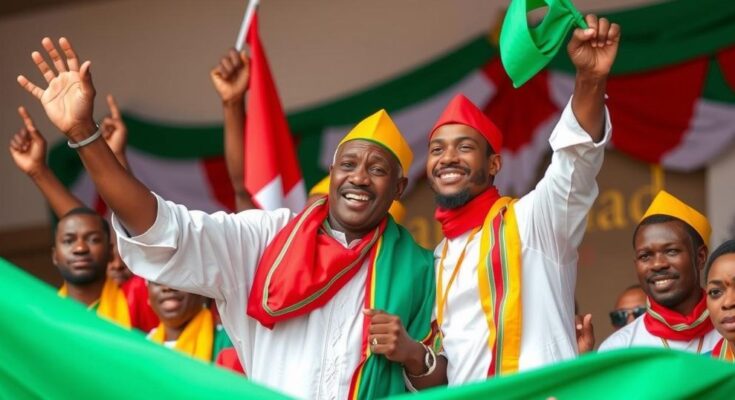Chad’s ruling party won a decisive majority in parliamentary elections boycotted by the main opposition, securing 124 out of 188 seats with a 51.5% voter turnout. The elections are seen as consolidating President Deby’s power, occurring amid rising security concerns and claims of electoral illegitimacy from opposition groups.
In the recent parliamentary elections held in Chad, the ruling Patriotic Salvation Movement party secured a significant victory, obtaining 124 of the 188 available seats. This election, which marked the first parliamentary vote in over a decade, saw a voter turnout of 51.5%. Importantly, the outcome occurred amid a boycott by the main opposition parties, including the prominent Transformers party, which criticized the election as lacking credibility. The elections are perceived as a consolidation of President Mahamat Idriss Deby’s political power, following his rise to leadership as a military ruler after the death of his father, long-time president Idriss Deby Itno, in 2021.
Chad’s political landscape has been tumultuous since the military takeover in 2021 by Mahamat Idriss Deby, which followed the death of his father who had ruled for thirty years. The recent parliamentary elections were part of a broader effort to transition to democracy, a process initiated after Deby’s controversial assumption of power. The ruling party’s success in these elections is seen as a pivotal juncture, particularly as the country navigates various security challenges, including terrorist threats and changing international relations.
In summary, Chad’s ruling Patriotic Salvation Movement party has established a commanding presence in the recent parliamentary election, primarily due to the absence of the main opposition, which boycotted the electoral process. This election not only reflects the consolidation of President Deby’s power but also highlights the ongoing political tensions within the country, as dissenting voices continue to question the legitimacy of the electoral process amidst external security challenges.
Original Source: abcnews.go.com




